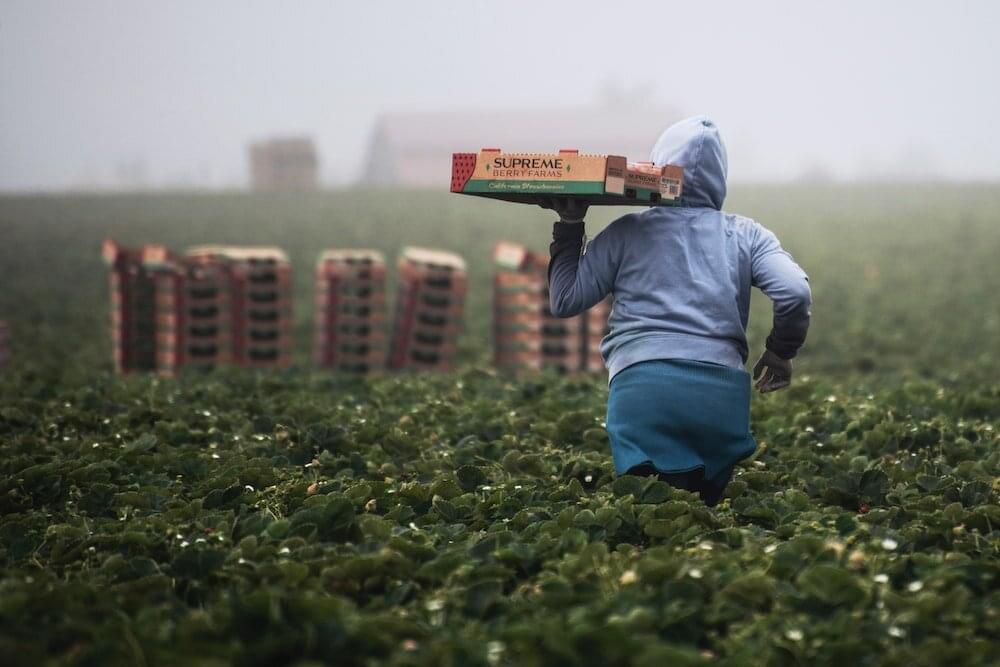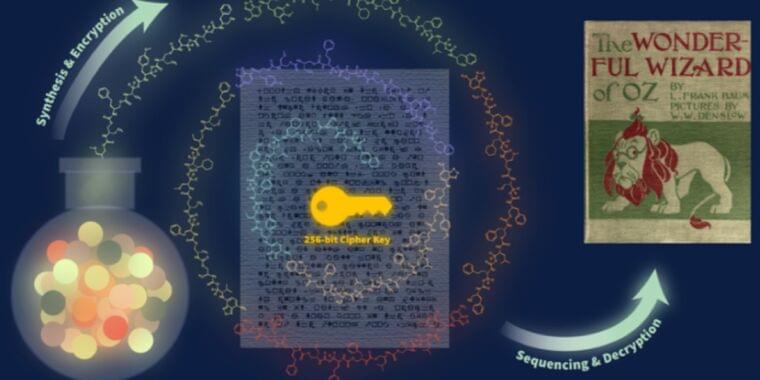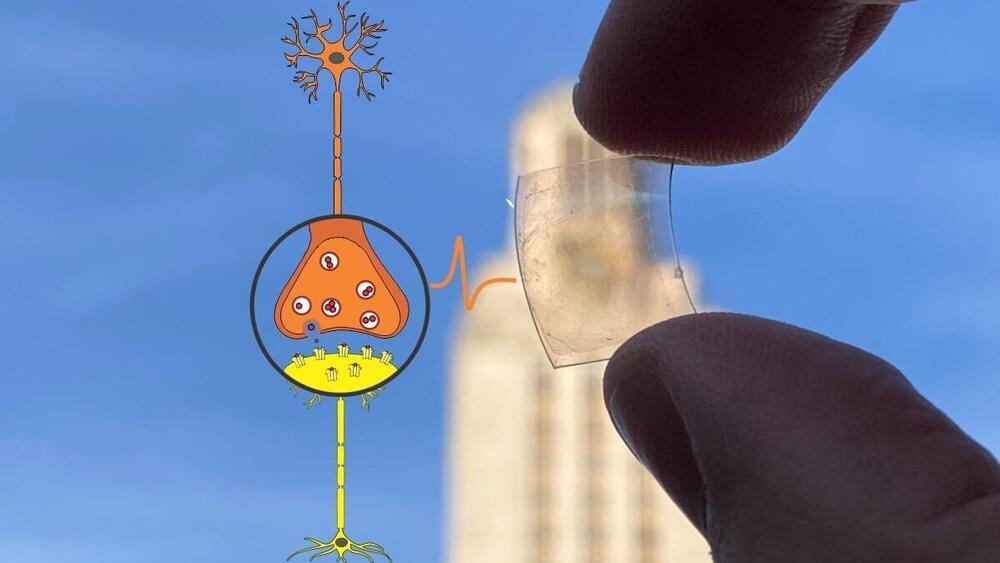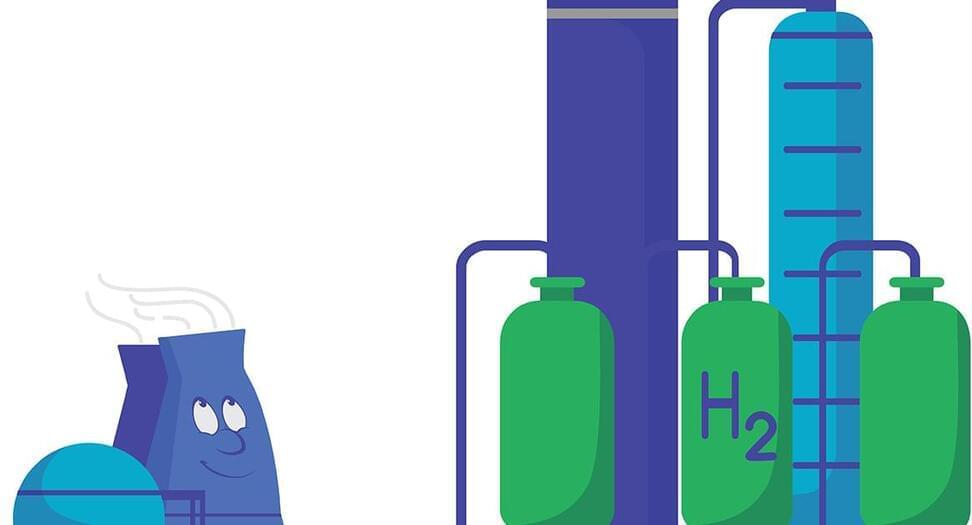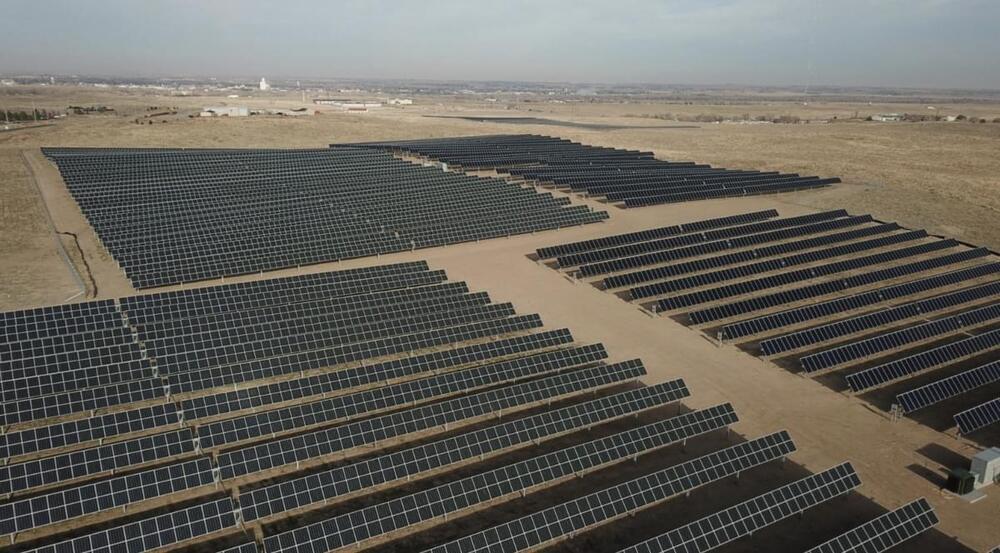Food recalls could be a thing of the past if artificial intelligence (AI) is utilized in food production, according to a recent study from UBC and the University of Guelph.
The average cost of a food recall due to bacterial or microbial contamination, like E. coli, is US$10 million according to study co-author Dr. Rickey Yada, a professor and the dean of the UBC faculty of land and food systems.
We spoke with Dr. Yada about how AI can help optimize the current systems used in the food processing industry, and how it can help make our food supply safer.
It’s “a revolutionary scientific advance in molecular data storage and cryptography.”
Scientists from the University of Texas at Austin sent a letter to colleagues in Massachusetts with a secret message: an encryption key to unlock a text file of L. Frank Baum’s classic novel The Wonderful Wizard of Oz. The twist: The encryption key was hidden in a special ink laced with polymers, They described their work in a recent paper published in the journal ACS Central Science.
When it comes to alternative means for data storage and retrieval, the goal is to store data in the smallest amount of space in a durable and readable format. Among polymers, DNA has long been the front runner in that regard. As we’ve reported previously, DNA has four chemical building blocks—adenine (A), thymine (T), guanine (G), and cytosine ©—which constitute a type of code. Information can be stored in DNA by converting the data from binary code to a base-4 code and assigning it one of the four letters. A single gram of DNA can represent nearly 1 billion terabytes (1 zettabyte) of data. And the stored data can be preserved for long periods—decades, or even centuries.
There have been some inventive twists on the basic method for DNA storage in recent years. For instance, in 2019, scientists successfully fabricated a 3D-printed version of the Stanford bunny—a common test model in 3D computer graphics—that stored the printing instructions to reproduce the bunny. The bunny holds about 100 kilobytes of data, thanks to the addition of DNA-containing nanobeads to the plastic used to 3D print it. And scientists at the University of Washington recently recorded K-Pop lyrics directly onto living cells using a “DNA typewriter.”
Computers that think more like human brains are inching closer to mainstream adoption. But many unanswered questions remain. Among the most pressing, what types of materials can serve as the best building blocks to unlock the potential of this new style of computing.
For most traditional computing devices, silicon remains the gold standard. However, there is a movement to use more flexible, efficient and environmentally friendly materials for these brain-like devices.
In a new paper, researchers from The University of Texas at Austin developed synaptic transistors for brain-like computers using the thin, flexible material graphene. These transistors are similar to synapses in the brain, that connect neurons to each other.
The Perseid meteor shower will peak this year in the early hours of 13 August. A full moon will make it trickier to see than usual but it is still worth a try — here’s how.
Silicon is the second most abundant element on earth, making up a hefty 27.7% percent of the earth’s crust. Apart from its ability to create sandy beaches and clear glasses, silicon also holds the potential to make highly efficient metal ion batteries.
In a world where alternative energy storage devices like lithium-ion batteries are gaining momentum, there is a need to harness the excellent specific energy capacity of silicon as an electrode material. The commercial application of silicon-based electrode materials is often hindered due to two major reasons: 1) lack of mechanical stability arising from uncontrolled volume expansion upon lithiation, the process of combining with a lithium-ion, and 2) rapid energy fading caused by the formation of unstable solid-electrode interface (SEI) formation.
Over the years scientists have developed various advanced silicon-based negative electrodes or anode materials to overcome the aforementioned problems. The most prominent among them are silicon nanomaterials. However, silicon nanomaterials come with certain demerits, such as a large demand and supply gap, difficult and expensive synthesis process, and, most importantly, a threat of fast battery dry-up.
A lack of market value and historically low natural gas prices are just some of the reasons making it hard for nuclear to compete in certain markets.
And with the rise of more renewables coming onto the grid, many utilities are considering a hybrid or integrated systems approach to improve the economics for baseload energy sources like nuclear reactors.
One opportunity is to utilize nuclear’s thermal heat and electricity to produce hydrogen.
Flying Sub Deluxe Edition
Posted in electronics, transportation
Steven PostrelIrwin Allen called…
When producer Irwin Allen’s popular television series Voyage to the Bottom of the Sea debuted its second season on ABC in September, 1965, viewers would note some exciting changes and additions to the show. Voyage was now broadcast in color, the nuclear submarine Seaview had been modified into a sleeker, four-windowed look, and the show would feature an important new star: the Flying Sub, a vehicle that flies through the air at incredible speeds and submerges to travel underwater at great depths.
The Flying Sub (also referred to as the FS-1) quickly became a signature element of the show, featured in almost every episode not only as a quick transport from the Seaview to land, but as an underwater exploration and defense vehicle that could dock at underwater research laboratories or on other submarines, and do battle with the menagerie of undersea monsters that threatened the Seaview. With its upswept, manta ray-like shape, vivid yellow-and-blue paint scheme, twin stabilizer fins, upper and lower hatches, gleaming headlights and the large forward windows that allowed viewers to actually see Admiral Nelson and Captain Crane (or at least miniature figures of them) at the controls of the craft, the Flying Sub became one of the most familiar and unique sights on ABC television in the 1960s, adding action and excitement to a TV show already overflowing with visual wonders.
Moebius Models presents an authentic 1/32-scale reproduction of the Flying Sub. This spectacular, high-end collectible is a fully finished, large-scale deluxe replica featuring incredible detail, highlighted by authentic lights and sounds. A true work of art created for the discriminating collector, the FS-1 Flying Sub Gallery Edition is limited to 300 pieces, includes a certificate of authenticity and is offered in deluxe collector’s packaging.
Using a robot confined to a sphere, scientists have proven bodies can move freely in curved spaces without pushing against anything.
The sad truth is that our electricity markets currently lack the ability to accept the vast amounts of renewable energy capacity to meet state targets and corporate commitments to procure clean energy. A study by Princeton University found that high-voltage transmission capacity would need to expand by 60% to meet clean energy targets, representing billions of dollars in needed utility upgrades.
However, we can avoid much of this need by siting renewable resources closer to where they are needed – at the distribution level of the grid. In order to do so, we will need to take several key steps to solve major system barriers to expanding renewable energy on the grid. The good news is that with some policy improvements – some major and some minor – renewable energy capacity at the distribution level can meet needs without the long lead time required for larger, utility-scale resources.

